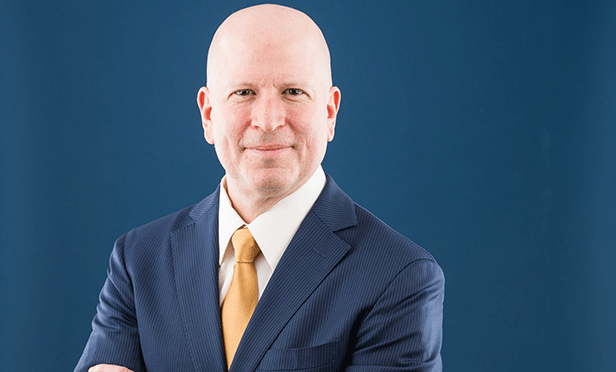
Now that some of the fear that has gripped the industry over the past two years is abating, there is a renewed emphasis on getting back to the basics of business. Commercial real estate is moving toward the old-school type of investing-when real estate meant bricks and mortar, not just a quickly traded, sliced and-diced commodity. A key component of that is asset management, explains Susan Smith, director of PricewaterhouseCoopers' real estate advisory practice in New York City.
She argues that during the heady days, from 2005 to 2007, most people in the industry lost sight of focusing on tangible assets while fundamentals were good. She believes we won't be so myopic again.
"If you're planning on being in the industry long term, the importance of asset management cannot be overlooked." Smith says." Asset management is essential during good and bad times. And investors are really taking a better look at ways to manage the asset, as well as preserve and increase its value."
In the past six months, the need for asset management has significantly picked up, says Noble Carpenter, managing director and head of Jones Lang LaSalle's value recovery services for financial institutions in New York City." We're finding lenders not only need special servicing on loans and workout services, but also REO asset management. That's what we are focusing a lot of our time on." he observes.
Over the years, JLL has managed more than $7 billion in real estate separate from its advisor, LaSalle Investments. Carpenter's unit does asset management on the debt side, including special servicing, while another department, Spaulding & Slye Investments, manages properties and REO assets.
"Banks don't want to be owners so a lot of them are looking for outside help." Carpenter observes." They contract out asset management and take into consideration an owner's perspective to resolve property-level issues with borrowers. They are looking for the best way to recover as much as possible on these positions while expending the least amount of capital and human resources."
It is in financial institutions' best interests to bring in a third-party advisor to navigate and recover value over the next two to three years, he says. Carpenter adds that while many of the big banks are able to take their workout guys and turn them into specialists, the smaller banks cannot handle the incoming volume. And banks and owners of all sizes need help when dealing with niche sectors, like seniors housing or hotels, he says. As the industry absorbs valuation declines at an average of 35%, preservation becomes ever more critical. Some of the key ways asset managers can add value are through reduction of operating expenses, applying for tax abatement, deregulating utilities or making sure insurance premiums are competitive, says Tony Thompson, founder and CEO of Irvine, CA-based Thompson National Properties LLC.
Some property owners are also signing early renewals with tenants and renegotiating service contracts. According to PwC's third quarter Korpacz Real Estate Investor Survey, "proper asset management is especially essential at a time when tenant demand has declined and rental rates are dropping like a stone."
Thompson explains, "The goal is to get in and first reduce operating expenses because you may not be able to find tenants, but you can always do something about how the property is being managed." His asset management firm, which opened shop in April 2008 and took on its first assignment six months later, has grown to almost 20 million square feet and 100 properties under management in the past 12 months.
There seems to be a growing number of firms specializing in asset management these days. What sets them apart are capital, staying power and knowledge gained from previous down cycles. Thompson says that many developers are looking to get into asset management to capitalize on their experience in developing and leasing, as development activity has ground to a halt. But it's not such an easy start-up, he says.
"You have to have all of the departments covered." Thompson explains." It's a big job to get into this space and perform to a level financial institutions and banks expect of us."
He notes that it's important to understand leasing markets and have leasing agents and an infrastructure that can account for properties and pay bills. What's more, providing financial statements that can answer a loan servicer's questions is crucial.
As many financial institutions become reluctant landlords, they look to asset managers to advise them on whether to sell or hold the properties that have landed on their balance sheets. While each situation brings its own set of variables to the equation, the decision really boils down to a couple of factors. The first thing to consider is what kind of reserves the asset owner has and their ability to absorb a hit or loss if they sell, Carpenter says. Secondly, they have to consider their prospects.
"We've got a number of assignments where lenders are realizing their best option is to foreclose, bring the asset on the balance sheet as an REO and manage it to optimize recovery value." he says." With other situations, we help with workouts. We're hired as a special servicer, we represent the lender versus the owner."
And this is just the beginning. Carpenter expects to see a fair amount of REO from financial institutions this time around-more than the previous recession in the early '90s. That means a greater need for asset management.
"There are no absolutes in this business today." Carpenter maintains." No one can tell you anything for certain. Everything is negotiated." He says lenders are willing to work with borrowers if they have a viable plan for the property and put some skin in the game. Lenders are doing everything they can to minimize issues and defaults.
In one case, Carpenter's group is trying to motivate the borrower on a major land development to see the deal through even though it is completely wiped out." We have to restructure the debt in a manner that allows them to get their equity back," he says." If you're willing to put new, real money into it-not a lot, but some-lenders will work with you. You need a plan. And you need to be proactive and tell the bank the extent to which you're willing to put in new money."
And that leads to one emerging trend in this cycle: the need for "rescue capital," as PwC's Smith calls it. While it may be no different from traditional recapitalizations, where new equity partners are brought in for a stake in the project, there is a definite need for additional capital in the absence of refinancing and other debt options. Lenders increasingly want to see owners and developers ante up and deploy more capital.
Meanwhile, this downturn has brought greater clarity across the industry." There's a lot more transparency between investors, especially with real estate funds," Smith says." There's more transparency and due diligence with buyers, sellers and lenders. Investors have hopefully learned some lessons."
As Thompson says, loans are no longer driving the decisions." We're back to the ABCs of real estate," he says." Financial engineering is great for a period of time, but it can be overdone. That's what happened in the last cycle. The reality is we're in a different environment and we have to adjust accordingly,"
Those that are opting for asset management now instead of a quick sale may be only planning to hold the properties two or three years until the market rebounds. But a renewed focus on asset management is likely here to say, Smith says."Investors are placing a greater emphasis on looking at commercial real estate as an asset," she explains." How do we take what we have and make it better? Not through fancy derivatives and financing, but through value improvement. That will continue. That will never go away again."
GlobeSt.com News Hub is your link to relevant real estate and business stories from other local, regional and national publications.
Continue Reading for Free
Register and gain access to:
- Breaking commercial real estate news and analysis, on-site and via our newsletters and custom alerts
- Educational webcasts, white papers, and ebooks from industry thought leaders
- Critical coverage of the property casualty insurance and financial advisory markets on our other ALM sites, PropertyCasualty360 and ThinkAdvisor
Already have an account? Sign In Now
© 2024 ALM Global, LLC, All Rights Reserved. Request academic re-use from www.copyright.com. All other uses, submit a request to [email protected]. For more information visit Asset & Logo Licensing.








